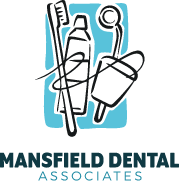Do you suffer from bruxism? This disorder involves chronic teeth grinding or jaw clenching and can lead to a number of uncomfortable symptoms. If you have this issue you may be wondering, “How do I stop grinding my teeth?” Fortunately, there is a simple and non-surgical solution to persistent teeth grinding.
Teeth Grinding Quiz
- True or False: Stress can cause bruxism.
- True or False: Symptoms include chronic toothaches.
- True or False: Without treatment teeth can become infected.
- True or False: An oral appliance may address the problem.
Answer Key
- True. In addition to stress, other possible causes of teeth grinding include malocclusion, tooth loss, and trauma to the face or jaw. TMJ disorder, a jaw joint disorder caused by strain on the joints can also lead to bruxism.
- True. Often patients only grind their teeth while sleeping, meaning some have no idea they require treatment. Common symptoms to watch for during the day include toothaches, headaches, earaches, and any wear and tear to the surface of the teeth. These may be warning signs of the disorder and should not be ignored.
- True. The constant grinding can wear down the tooth structure and even cause cracks or chips to appear. These allow bacteria to bypass the protective layers of enamel and reach the dentin, where decay can form. Over time, the decay can spread to the pulp and cause an infection. To avoid an infection or possibly losing a tooth you should have your grinding issue diagnosed and treated.
- True. An oral apparatus looks similar to a nightguard. Worn while you sleep, the apparatus provides a barrier between the upper and lower teeth, which prevents further damage as a result of bruxism. In addition, some oral appliances can reposition the jaw, which can help end episodes of grinding.





Recent Comments